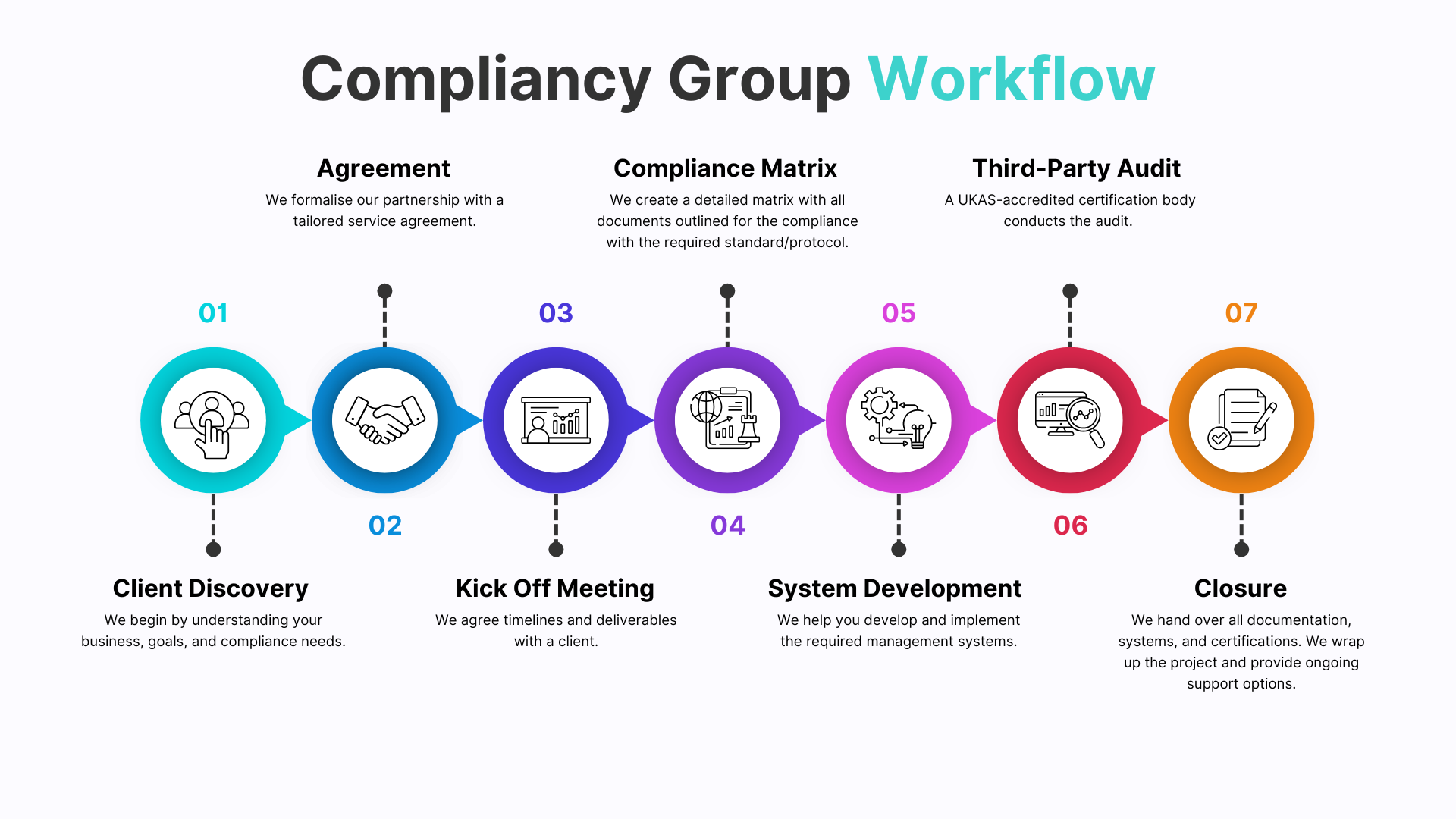We're Here To
Help
An Allergen Management Audit is a critical inspection designed to ensure that your organisation effectively controls and manages allergens throughout the food production or handling process. Achieving a successful allergen audit demonstrates your business’s commitment to food safety, regulatory compliance, and consumer protection – trusted by clients, partners, and regulators across the food industry. With robust allergen management, you minimise the risk of cross-contamination, protect sensitive consumers, and strengthen your reputation. Compliancy Group guides you through every step – making allergen management compliance clear, practical, and a genuine business advantage.
We understand the complexities of allergen control and food safety regulations. Our team brings hands-on experience with allergen risk assessments, process audits, and industry best practices.
No one-size-fits-all here. Whether you need gap analysis, policy development, staff training, or ongoing compliance advice, our services are fully customised to your operations. We offer flexible support packages—from essential guidance to comprehensive on-site consultancy.
We work exclusively with UKAS-accredited certification bodies and maintain a 100% pass rate for compliance assessments. Our clients trust us to deliver results that stand up to audit and regulatory scrutiny—helping you achieve, maintain, and leverage allergen management compliance for business growth.
Compliance shouldn’t slow you down. We help you build safer processes, reduce risk, and improve efficiency—so you can focus on producing safe food and expanding your business.
You’ll work directly with our expert team, including leadership involvement from our CEO. We pride ourselves on responsive communication, clear guidance, and ongoing support throughout your compliance journey.
Demonstrate compliance to secure contracts with major retailers and food service providers.
Show your commitment to food safety and consumer protection.
Minimise the risk of allergen cross-contamination and costly recalls.
Enhance your standing as a responsible and trusted food business.
Regular audits and compliance checks foster a culture of ongoing improvement and operational excellence.
Strengthen Reputation
From gap analysis to audit support, our team ensures you’re always prepared and confident.
We streamline compliance processes, freeing up your team to focus on core business activities.
Services are tailored to your specific business needs, not generic templates.
Ongoing support, training, and regulatory updates keep your business compliant long after inspection.
Our 100% compliance pass rate and exclusive partnerships with UKAS-accredited bodies mean you’re in safe hands.

Yes, non-compliance with allergen information laws in the UK can lead to legal penalties, including fines, lawsuits, and criminal charges.
Allergen management involves procedures, policies, and practices to control allergens in a food business, forming part of overall food safety management.
The FDA requires food labels to clearly identify the food source of all major allergens used in products.
Organisations must declare the 14 regulated food allergens, train staff about allergens, and make clear, accurate allergen information available in writing for consumers.
Allergy blood tests, including total IgE and specific IgE tests, are used to determine if a person has an allergy and to which allergen.
The main types are food allergens, skin allergens, and dust allergens.
A written Allergen Control Plan outlines storage, handling, processing controls, cross-contact prevention, and monitoring methods.
Severe allergies may be protected under the Equality Act 2010, requiring employers to take steps to prevent health issues caused by workplace activities.
A food allergy audit assesses a food business’s compliance with allergen regulations and food safety standards.